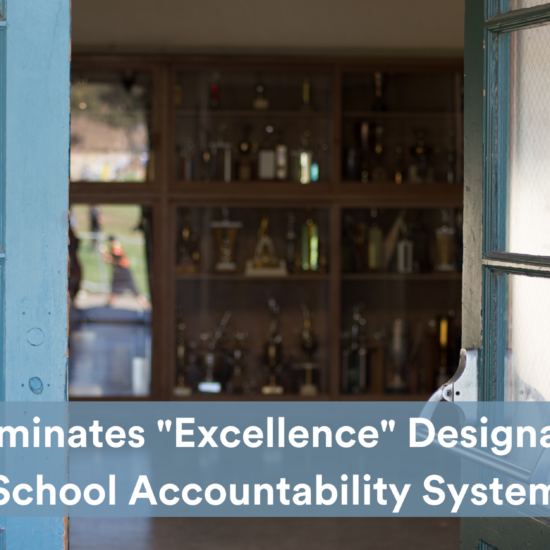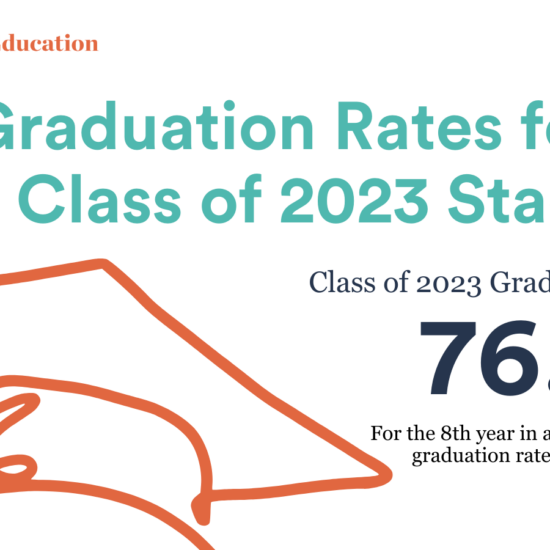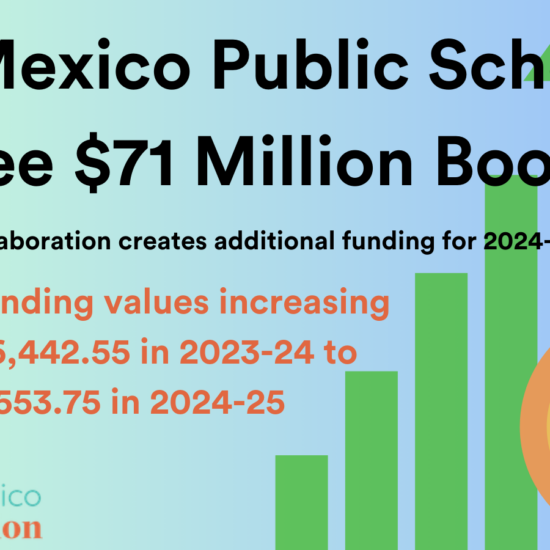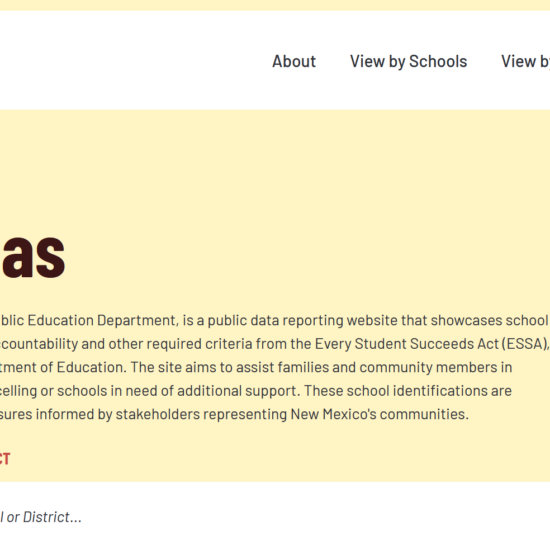
New Mexico voters are likely to be asked to vote in 2024 on a constitutional amendment that would remove the Public Education Department from gubernatorial control and move it under an elected board.
Proponents of Senate Joint Resolution 1 said in various legislative hearings over the past two weeks that high turnover at the top of the PED in recent years has led to instability, hurting the quality of the state’s education system. They expressed the belief that having an independent, elected board hire the state’s top education official to run the PED would stop the revolving door and allow the department to set a steady course.
Opponents countered that removing public education, which consumes 45 percent of the state budget, from gubernatorial control would diminish accountability and result in worse outcomes for kids.
SJR 1 passed the State Senate March 1 on a 36-1 vote. It passed the House Education Committee earlier this week on a 9-2 vote, and needs only full House approval to be sent to the voters.
A statewide vote of the people on the constitutional amendment would be held in 2024. If passed, the amendment would create a state school board that would set education policy and appoint a superintendent of public instruction to manage the PED.
The state school board would be composed of 15 members, 10 elected and five state officers appointed by the governor, for staggered terms of six years.
Public education operated independently from the executive branch until 2003, when then Governor Bill Richardson shepherded passage of a constitutional amendment creating the Public Education Department and the position of education secretary. Advocates for the change at the time said that the state board was too often deadlocked and education policy was slow to adapt to the times and change course when needed.
Senate President Pro Tem Mimi Stewart, D-Albuquerque, the legislation’s co-sponsor, argued that the amendment would help remove politics from the state’s public education apparatus.
“Every either four or eight years the education community basically gets whiplash because things change so drastically, with a new administration and a new secretary.,” Stewart said during a Senate committee hearing on the bill. “That did not happen when we had a partly elected, partly appointed state school board.”
During the House Education Committee hearing, NewMexicoKidsCAN Executive Director Amanda Aragon said an elected board would not reduce politicization of the state’s education system.
“We agree that politics should be out of education, but running 10 elections across the state of New Mexico will…follow what we’ve seen in school board elections across the state and across the country that have become more political, more ugly and caused more chaos at the local level,” Aragon said. “We don’t believe doing that at the state level is the best way to remove politics from education.”
State Rep. Susan Herrera, A Democrat who represents Rio Arriba, Santa Fe and Taos, said instability is more of a problem at the local than the state level. “Leadership matters and stability matters, but I think it matters more at the local level, frankly, than it does at the top,” Herrera said. “Our big problem is the huge turnover of superintendents and school boards.”
Colorado has had an elected state board of education and board-appointed education commissioner for several decades. “The obvious advantage of having the governor appoint the commissioner is that the single biggest item in the state budget is education, somewhere around 40 percent,” said Van Schoales, a long-time educator and advocate, who currently serves as senior policy director at the Denver-based Keystone Policy Center. “It makes sense for the governor to have some control over that.”
Schoales also said a 15-member state board of education is problematic, in part because a body that large can have a hard time making decisions, and in part because voter engagement in such elections is often extremely low.”
In theory, he concluded, it makes sense to have the governor appoint the state’s top education official, “but it depends who the governor is.” He said former Governor Susana Martinez “wanted to change the system and therefore had a very strong, reform-oriented secretary,” but that current Governor Michelle Lujan Grisham “doesn’t seem interested in reforming the system.”
‘So it’s kind of a mixed bag,” Schoales said.







